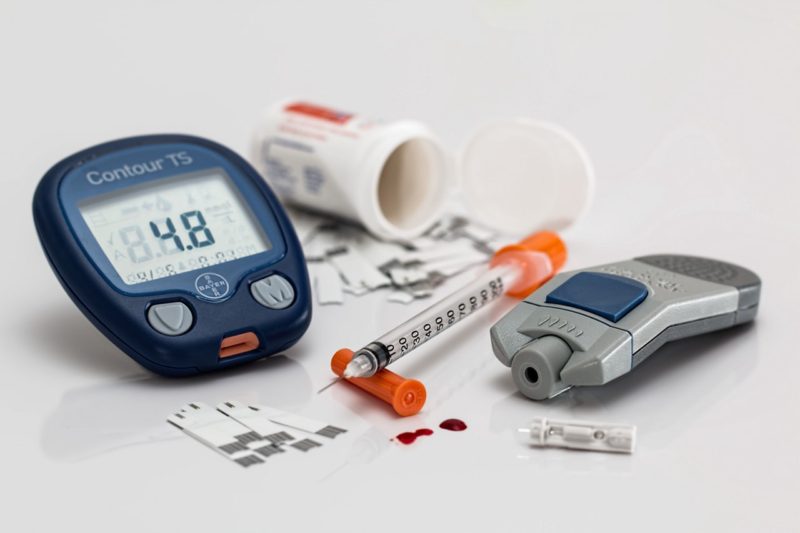“As parents we carry other people’s burdens”
I heard this quote on a podcast today and it’s stuck with me. I think it’s the reason I’m struggling to come to terms with my role as the parent of a teenager. As parents – and especially if we’re the main caregiver to our children – our most important goal is to nurture them and keep them safe. Nurture and keep safe. So when they become teenagers, and no longer want us to carry their burdens (indeed, most of the time they no longer even share their burdens with us) our sense of purpose and identity changes dramatically. This change is felt even more keenly when you have teenagers with diabetes.

Evolving from Mummy to Mother of Teens is hard
As mothers the first instinct to feed our child is overwhelming, and we carry that throughout their young lives. They’re dependent on us for their wellness and safety, as well as for shelter and comfort. Most of the time their happiness depends on their relationship with us, and on how we support them with their problems. We’re their first port of call. And we have pretty much full control over how they live their lives. Until they become teenagers. That’s when our role as parent has to change; and it’s never more starkly clear than it is when we have teens with a serious medical condition.
Parenting teens with type 1 diabetes
We’ve recently hit this phase in our house, with our daughter, who has type 1 diabetes, turning 16. Clearly we’ve had a few years of dealing with teenage blood sugar – the hormone-induced rollercoasters of glucose are notorious for having parents up in the night, and more freedom, pizzas and sleepovers are a challenge for all teens with type 1. And she’s done an amazing job of staying on top of things in the moment. But up until recently she’s left a lot of the deeper decisions about her diabetes control to me. Teenagers with diabetes have a lot on their plates, so I’ve taken on things like adjusting her pump settings (which needs to be done every few days), ordering from her 17-item long list of prescriptions, and taking control while she sleeps, and liaising with school to make sure she’s safe on school trips, and has as much opportunity to pass her exams as her peers do.
And I’ve been glad of it. It’s kept me close to what is – frankly – a very scary condition if you stop to think too hard about it. And whilst it’s exhausting, I wanted that exhaustion to be mine, not hers, for as long as possible. After all, she has a lifetime of this. Nurture and keep safe…

A few months before her birthday Maddie asked us to take a step back from her diabetes management. She wanted to be accountable to herself, not her parents. She didn’t want us coming into her room in the middle of the night, didn’t want so much of what I’m sure she thought of as quizzing when she got in from school, and didn’t want the constant yells up the stairs to alert her to the fact that she was low or high, when she could see that for herself thank you very much – she has the Dexcom app too, you know!
I completely understood. I knew this day was coming, and I’ve even craved it sometimes – did I mention I’m exhausted? And isn’t it exactly what all parents want – for their children to grow into young adults who are capaple of taking care of themselves? But even though it’s our ultimate goal, that turning point when they start to do what we’ve trained them to do comes as a shock, and a tangible pain. Our roles are suddenly changed completely, and now it’s us who are at sea, the parents. Unsure of how best to support our kids without overstepping the mark they drew overnight in the sand, and desperate to squeeze every last bit of our wisdom into them before they stop listening altogether.
The trouble is, by the time we realise it it’s already too late. They’ve stopped listening to us, and will only countenance their own certain knowledge, or the views of their friends (and sometimes the celebrities they watch on TikTok).
With type 1 diabetes in the mix this can be even harder for parents to cope with. All that intuitive medical knowledge we’ve built up over the years that means we can deliver minute doses of lethal medication in the middle of the night after a couple of proseccos without even thinking about it – they don’t know that! All the behind the scenes work we did to keep the prescription cupboard well-stocked, and the ‘firm’ discussions we’ve had with school officials, GPs and swimming coaches. We kept that from them because it was too hard. It was a parent’s job, not a child’s.
But now they need to know, and the time for hearing it from us is gone. Now they have to step up and hold those reins themselves, even if it means they fail sometimes. Even if it means they don’t get a fair deal from the benefits agency, or the teacher in charge of their next trip. Even if it means that high blood sugar in the night goes untreated for a few hours longer than it used to. It’s what needs to happen, it’s the process by which they will eventually – hopefully – be able to leave home and take care of themselves. Just please god not too soon, okay?

Tips for parents of teenagers with diabetes
So what can parents of teenagers with diabetes (and actually parents of teens in general) do to ease this transition, for themselves as much as for their children? How can we cope with our own emotions as we watch our kids navigate away from us by themselves? Here are some of the things we’ve done recently that you might also find helpful with parenting your teen with type 1 diabetes.
LOWER YOUR EXPECTATIONS
Teenagers are going to make mistakes. At 16 years old, although they want you to think they know everything, we know that they don’t. No amount of instruction is going to sink in though, so whilst we can drop regular bits of coaching (that they will translate to nagging) and hope that some of it sticks, our best bet is to let them do it. And be there to pick up the pieces if it goes wrong.
MANAGE YOUR STRESS LEVELS
Teens are also going to take risks. Apparently it’s caused by reduced dopamine levels, meaning they need bigger and bigger hits to get the same happiness hormones to hit. It’s why experimentation with drugs becomes a bigger risk in the teenage years, and why they might do things we think are dangerous where sex and alcohol is concerned. This more lax approach to the rules is also going to be a factor in their insulin-dosing decisions and their blood glucose management. As parents I think we need to expect some things to go wrong, and for our kids to do things we don’t really want them to do. So having our own coping mechanisms (breathing, exercise, time to talk with like-minded friends) set up in advance is crucial to our own wellbeing and ability to cope with whatever they throw at us.
WORK ON YOUR PERSPECTIVE
Whether it’s a higher hbA1c (diabetes blood test) or crappier than ideal diet choices, try to go with the flow. Remember that teenage years are a phase, like anything else, and that most young people turn into responsible adults who can keep themselves safe and well most of the time. I’ve decided that a few ugly-looking years aren’t likely to ruin them, provided they have backup when it’s really needed. Perfectionism is no longer your friend when you have a teenager.
TRY NOT TO LECTURE
I feel it acutely that my children no longer tell me what’s going on in their lives. I remember as a teenager not wanting to tell my parents anything about my life, because I knew they’d be controlling and judgemental about it, so I’ve worked really hard to make sure my own kids don’t feel that way. But we’re at a point now where I feel like I must have failed, because here we are with me knowing very little beyond their school stuff, and them meeting every question with a shrug. I find myself wondering when I became so needy, such is my craving for the tiniest bits of personal information from my children. Where I used to know everything, I now realise I must allow them to keep that information from me, and share it with their friends instead. At least, I hope they’re sharing it with their friends. With someone…

Every now and then though they will gift me with an anecdote. It starts well, and I gobble up every bit of it, delighted to be part of their inner circle. Until I spot a teaching point. The parent in me finds it nearly impossible to let those go by, and I cringe as I listen to myself say Well, maybe that’s a lesson for you; remember to brush your teeth next time; start your homework earlier in future; and remember how this hangover feels next time you’re at a party.
Inevitably, where diabetes is concerned this compulsion is even more irresistible. After all I only have a few more years to instil everything that I know into my child before she’s on her own. But even there I have to check myself. It was my daughter who said to me recently after one such instance “Mum, if you turn every conversation into an opportunity for a lecture I’m just going to stop telling you things.” It was a strong point, I think, and one worth trying to hold onto.
TRUST THE PROFESSIONALS
If you have a good medical team, now might be the time to let your teenager go it alone a bit in consultations. After all it won’t be long before they have to do this anyway, and who knows? Maybe your child will be more likely to listen to a diabetes professional than they are to you, and maybe they’ll come away with some lessons you weren’t able to teach them. It can’t hurt…
And if you’re looking to find out more about how your teenager’s brain works, I’m currently reading The Teenager In The Greenhouse, and I can’t recommend it enough. It really helps explain why sometimes parents and teenagers can’t seem to meet in the middle!
What do you think? I’d love to know if you have any tips to help me navigate this, the most tricky part of parenting a teen with diabetes. And you might also find this post useful on how to help create resilience in adolescence.
[box] COACHING FOR PARENTS OF CHILDREN WITH DIABETES: If you’re a parent of a newly diagnosed child with Type 1 Diabetes, I’m offering some one-to-one coaching as part of my coaching practice. I’m not making a charge for this, but I will ask for a donation to be made (of whatever you can afford or think is worthwhile) to JDRF, the Type 1 diabetes research charity. I know that navigating those early stages with diabetes is hugely challenging for parents, as they come to terms not only with the amount of learning needed, but also the grief of a shocking diagnosis. I’ve been there and come out the other side, and I know how valuable it was to have access to the few friends I knew who’d been there before me. If you’d like a confidential conversation with me visit my Just Giving page to get in touch and start the process. [/box]
Top quote from ep. 101 of Midlife Matters podcast.

Thank you for an interesting and inspiring blog which I’ve just discovered via the JDRF Facebook page. I’m new to both the teenage years and to T1D- my son was diagnosed in May this year during lockdown, and turned 13 in June. Much of what you shared resonated and I have much to learn! I’m interested to read more of your posts- thank you!
Hi Mel, thank you so much for commenting, and I’m sorry you’ve had to find yourself here. It’s a difficult journey, but you do get better at coping with it in time. The teenager thing is hard whatever they’ve got going on, I think! But you have a couple of years before you have to start dealing with the spending more time out of the home than in it phase I think! Some time to embed some good practice. Most of them are absolutely fine, and as a mum my daughter makes me so proud of how she deals with it. T1D kids really show us what they’re made of 🙂
Thank you for your post. We are in our first month of learning about and dealing with Type 1 with my 13 year old daughter. Your post has given me hope for the future after a month filled with a whole range of emotions. Thank you for sharing your experience.
Hi Adele I’m so pleased you’ve found it helpful. It never becomes easy as a parent but I’ve learned to trust that eventually they do find their own way. There’s never a good age for diagnosis but teens is tough. It’s probably a good job we’re in lockdown with plenty of time to practice and learn together! Good luck with your journey xx